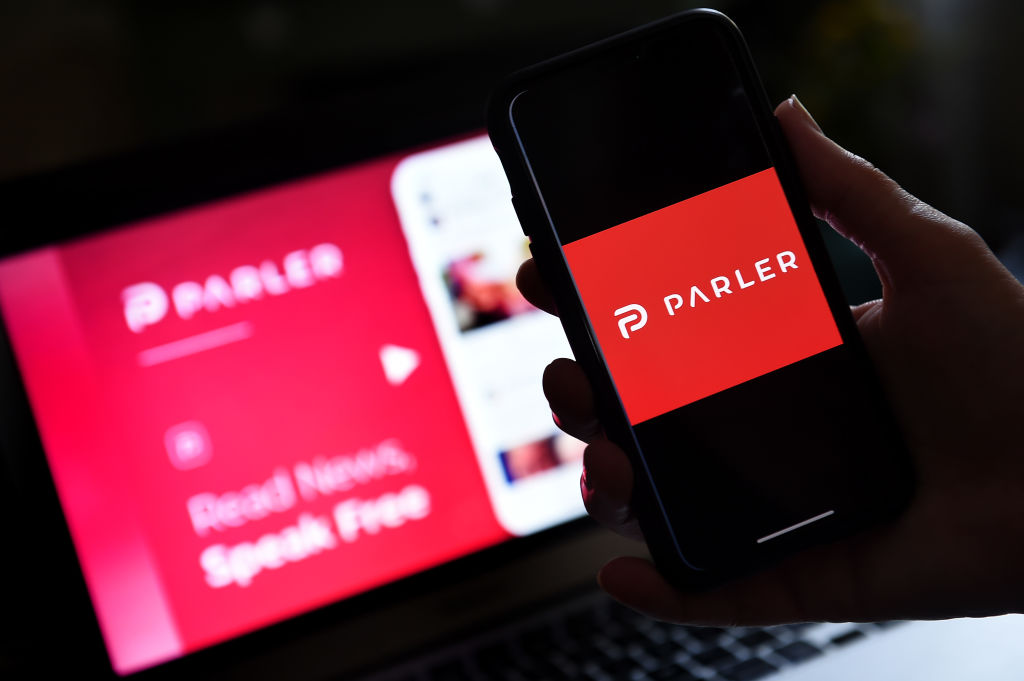If your aim is to stop America descending into civil conflict, it’s hard to think of a less effective method than forcing millions of people to abandon public platforms and instead use some segregated messaging system. Big Tech companies are not actually de-escalating hate online censorship, and corporate media companies are merely using their actions as an excuse to de-platform their ideological competition.
The Silicon Valley overlords should think about this as they carry out an unprecedented purge of users following the siege of the Capitol. President Trump’s personal and official Twitter accounts have been ‘permanently suspended’ (oxymoron?) and Facebook has banned him from posting. Conservative blue-checks have watched as tens of thousands of followers have disappeared from their Twitter accounts with little explanation. Cry us a river. CNN hall monitor Oliver Darcy used the opportunity to try to kneecap a competitor, urging cable companies to stop carrying Fox News.
Social media’s biggest draw was the ability for everyday people to gain a following and have their voices heard. No longer. These platforms no longer exist as a sandbox for their users, but as a bulwark for the corporate media. The reckoning started shortly before the election when the media successfully lobbied Twitter and Facebook to block a New York Post story about Hunter Biden’s hard drive and a subsequent DoJ investigation. Now, corporate journalists have decided that disappearing a significant portion of the population from the mainstream internet is the best way to fight the kind of radicals who overran the Capitol building on Wednesday.
But this move will no doubt backfire.
It wasn’t enough for these social media platforms to cull their own user base. Parler, an alternative platform for right-wingers already banned or fearing removal from Twitter, was pulled from Apple’s App Store and the Google Play store. Amazon went a step further and booted Parler off its web hosting service, rendering the app unusable. Parler is by no means a normal chat service: it hosts people such as attorney Lin Wood who made radical death threats against Mike Pence, as well as smaller accounts that made vague and generalized threats regarding the election and the siege on the Capitol. However, any coordinated action against speech by Big Tech giants and the media should set alarm bells ringing.
Some are excusing Big Tech’s foray into massive censorship by arguing that these are private companies and can choose who they provide service to. Anyone who has a problem with their behavior, they reason, should just create their own platforms. But that is exactly what Parler did, and it was subsequently crushed. Unfortunately, because Big Tech companies have grown so large and monopolistic, the only real way to have a viable competitor is to create an entirely new internet.
Amazon’s hypocritical justification for banning Parler shows that these companies will do basically anything in order to destroy the competition. Amazon claimed that Parler is responsible for the content that it allowed users to publish, which is the exact same argument made by people who wish to remove Section 230 protections for social media companies. Amazon thus introduced a moral and legal standard for a potential competitor that it would resist tooth and nail if applied to itself. The company notably used Section 230 as a defense in a recent court case to try to avoid liability for selling defective products.
It’s worth noting that many conservatives do not believe that social-media companies should do away with all content moderation. The problem is that platforms like Twitter, Facebook, and now Amazon, do not enforce their policies equally. After suspending Trump, Twitter was still hosting virulent anti-Semites, Chinese Communist party propaganda, vaccine conspiracists and antifa glorification accounts like the New York Times. If these companies only enforce policies against accounts with certain political leanings, it will radicalize a base of the population even more.
***
Get a digital subscription to The Spectator.
Try a month free, then just $3.99 a month
***
The people who are targeted online by Twitter and Facebook’s increasingly wide nets will simply find deeper and darker holes to communicate. Sunlight has always been the best disinfectant as a way of fighting radicalization. Deleting the account of someone with a radical opinion does not stop that person from holding that opinion; in fact, it may cause them to dig in even deeper in retaliation. Meanwhile, people who are unfairly targeted by social media platforms may start to sympathize with the radicals.
The dissidents who stormed the Capitol building should be punished by law, using any and all evidence against them, including their social media posts. However, much like the surveillance reaction in the wake of 9/11, history has shown that these kinds of campaigns don’t stop with the perpetrators of extremist events.
‘We could all see this coming’ say the pundits as they look back over the manifold seditious messages being broadcast across various internet platforms since the November election. Well, if you censor angry paranoid people on the internet, guess what happens? Next time, we may not see it coming at all.

























